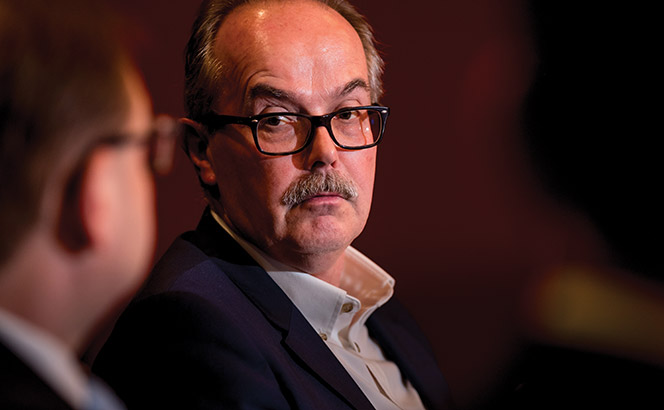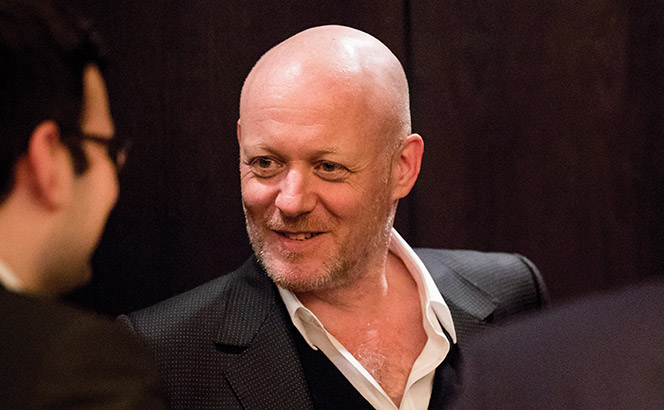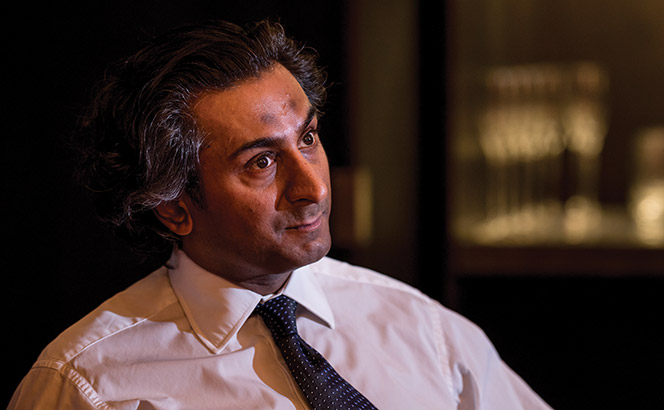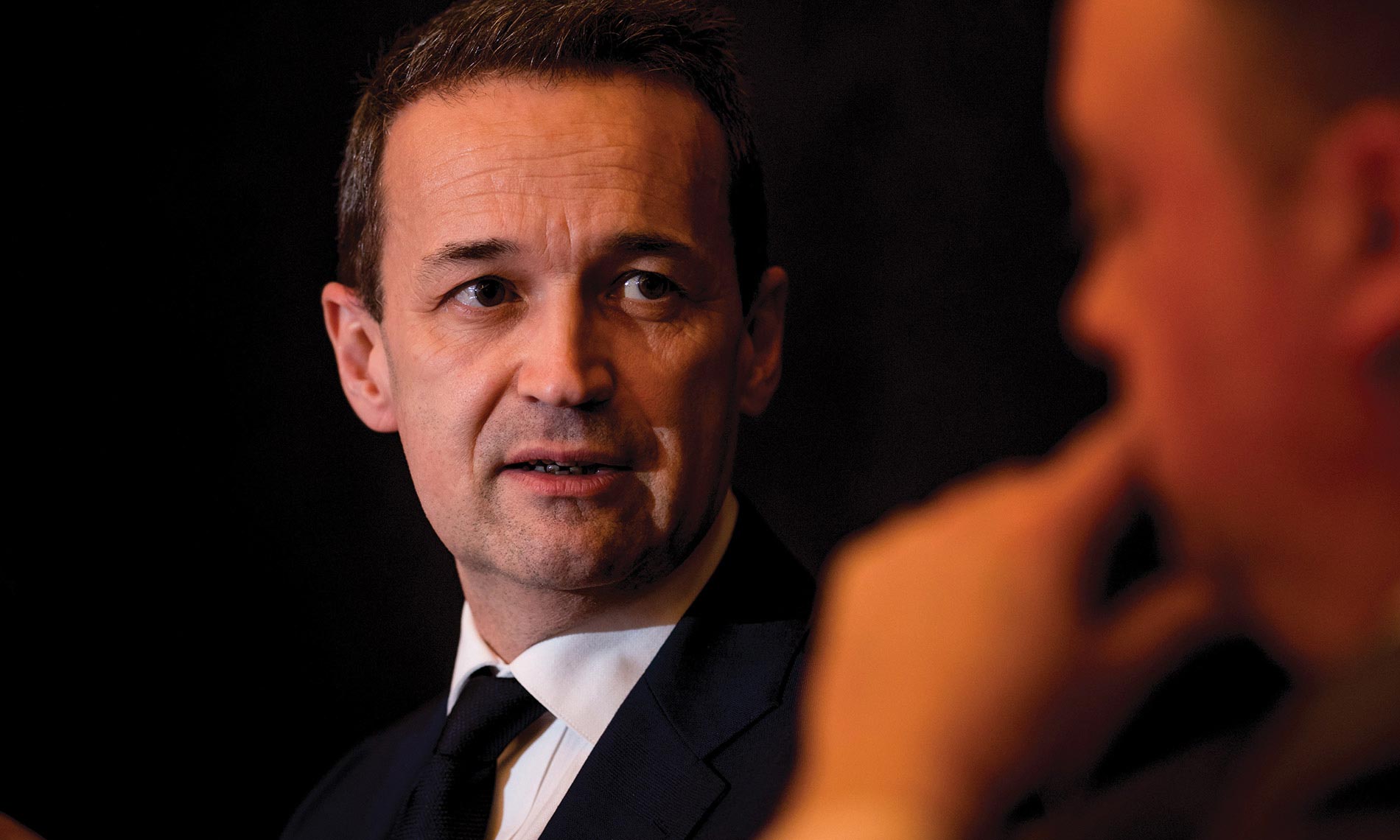Craig Arnott, Burford Capital: Litigation finance used to be perceived as a last-ditch resort for impecunious clients. That has transformed, largely because of cost pressure. It is just at the start of the change, especially on the corporate side and what possibilities there are for outsourcing. It seems a little crude, but it is an outsourcing alternative for corporates that involves financing in a way that would be thought of as outsourcing before, but is a way in which they can take books of business off their balance sheet.
Tim Brown, RPC: Several years ago we went to a bank and spoke to somebody fairly high up about the possibility of them instructing RPC to act for them under 100% CFAs [conditional fee agreements]. The offer was for them to select some cases, give them to us, and if we considered they had a good chance of success then we would do them effectively at no cost, which had the benefit of removing the cost risk from the balance sheet. The lawyer there was very interested but he came back about a month later and said the necessary people were interested but not at the moment and we asked why.
The response was interesting: ‘We like paying legal costs. It sounds a bit odd, but it is the control. By paying, we believe we have control.’ Things have changed significantly since then, but I am not sure it has changed exponentially.

‘If you attract funders that is because they think there is money down the track.’
Craig Arnott, Burford Capital
Mark McAteer, Legal Business: Richard, some years ago you were quoted as saying that you do not use funders but you were not saying that you never would. Has your position changed?
Richard Blann, Lloyds Banking Group: We are the defendant in the majority of our cases. We have had discussions with funders but nobody has come up with a particularly compelling model for funding a defendant portfolio. Obviously, there are different books – very different – of business within our portfolio. Some of them can be dealt with as a book but a lot is bespoke, very high value, high reputational worth defence work that involves particular individuals within the organisation. Control does remain important.
Mark McAteer: Are corporates acting as claimants more? Is there a driver to use litigation as a way of generating revenue for the business and adding value?
Sean Upson, Stewarts Law: We talk to a lot of corporates and the answer that comes back is that budget is largely used for ‘defensive purposes’. However, if you then go along and say, ‘Here is a cartel claim’ or, ‘Here is a claim you may not have thought about but here is a funder who is willing to fund it and take it off your balance sheet’, it then becomes an opportunity.
Guy Harvey, Shepherd and Wedderburn: It is a psychological issue, which is enormous for people who have been brought up to believe that litigation, even as a claimant, is a pain in the backside. How often have we been told, when we finish a case, ‘Well, thanks a lot. I hope we never see you again’, whereas we should be saying to them: ‘Here is the good news. We found something you did not know you had. We are going to make lots of money for you.’ That is a big shift.

Matthew Redding, EE: The business is used to receiving revenue opportunities from departments other than the legal team.
Mark McAteer: Angus, would there be difficulty in persuading the board to view litigation in that light?
Angus McBride, News UK: Litigation is the bane of our lives. It is difficult at the moment to see how it could be a positive thing in any way. We are facing so much litigation against us that my role as GC sometimes feels like it is just dealing with that. The idea of spending the space, time and resource to look at going out there to see where we can be more aggressive is something that is difficult at the moment although I can never rule it out.
Craig Arnott: What is attractive then is you think, ‘Okay, I do not want to spend my time or my staff’s time on doing this. I want a cost-free solution’, so I say to my external lawyers: ‘Here, you do it.’ I like these lawyers. I get to keep the lawyers I want who I think are good, and it is on a cost-free basis, so it will come back if you get some money later on down the track. If you attract funders that is because they think there is money down the track.
Hamish Lal, Akin Gump Strauss Hauer & Feld: One sector where we do see corporates wanting to act as claimants is in real estate, especially in London. Whether the disputes are with our co-investors, funders or very occasionally professionals, real estate developers quite like the idea of a third party taking on risk. They are just used to the debt/equity risk. They like the concept of, not speculation as such, but innovation and they also like the concept of funders being the expert and almost getting an appraisal. It is somebody else’s to fix.
Mark McAteer: What about telecoms, Matthew?

Richard Blann, Lloyds Banking Group: My employers are not interested in setting up a new line of business that involves suing people.
Matthew Redding, EE: We are a funny business because we are also a large retail business as well as a telecoms business. From the telecoms side, we are more often than not defendants. On the retail side, I have been approached on things like group actions against credit card companies. There is opportunity there. It is really hard, though, to try to take that through the business. The business is used to receiving revenue opportunities from departments other than the legal team. We are not clear enough on the opportunity to be able to sell it effectively to the business.
Craig Arnott: In English litigation we have no control. The client is in control of the entire thing, including settlement. This is why it will vary and will vary according to the particular business problem and particular supplier relationships: sometimes people bring us matters because the litigation needs to be taken forward to get a result that they think they want, but they do not want to be seen as in control. Sometimes this can work the other way. The lawyers – none here but other lawyers – certainly lead the legal strategy but, at the end of the day, the real pinch point probably comes at settlement and who is going to decide that, but our funding agreements provide us no settlement control.
Mark McAteer: Do you think there is a fundamental issue with CFOs and boards viewing the in-house legal function as a cost so monetising legal work is anathema?
Richard Blann: I work for a banking group and they are not interested in setting up a new line of business that involves suing people. That is the fundamental problem.
‘The opportunity cost of taking on some of these matters is so great that you’d have to be pretty convinced that you are going to get a great outcome.’
Ned Staple, ZPG
Angus McBride: It depends what you mean by cost. We are part of the central defence of the company from attacks all around. If they get through, it has a significant impact on everything. I define the legal function as part of the essential part of how you keep a company running.
Matthew Redding: We are often viewed as a cost in pure monetary terms. It makes our job harder to justify sometimes. If you are on the aggressive side and undertaking litigation, you might receive the cash in but there is also an undefinable cost in terms of relationship with a counterparty, which is the flipside to being the person who is suing. That is much harder to quantify.
Richard Blann: Your point about control is absolutely right. I understand that having a third-party funder does not mean you are ceding control. The counter of that is that it does not lead to any saving in internal governance. That is the expensive bit from management’s point of view. The idea that management, just because somebody else is paying for it, is no longer interested in having it reported and monitored is obviously false. It is a mistake to think that just because it is outsourced and off the balance sheet, there is no need for the same level of governance.

‘It is interesting that the Magic Circle have not greatly bought into funding of litigation.’
Guy Harvey, Shepherd and Wedderburn
Craig Arnott: That will depend also on the sort of matters that, for instance, were in a portfolio like that. Sometimes it is a decision that is driven by finance rather than the legal department, but it still may be that it is a decision that can be taken and has been taken – we have dealt with banks who have done this – that it is worth their while to do it because they think they will get something more than they otherwise would have. That may not solve your problem about the governance and management of it, which has to be there but because of the use of third parties, we are certainly developing this expertise and experience about budget management. I have noticed that a lot of corporate clients like it.
Hamish Lal: One of the industries that is not here is the oil and gas sector. Historically, these guys just litigated certain higher value disputes and wrote off the rest. Since 2016, you are seeing some of the younger, more ambitious lawyers going out and trying to get historic disputes or claims that were left behind back on track where the business does not have the appetite or the funding. They are not massive disputes in the full scheme of the oil and gas sector but they are still some $20m to $25m. That is one area where funders will become more relevant, especially in West Africa where there are still big claims.

‘There has been a massive rise in the last ten years of funding in arbitration cases. It is all in line with a US-style, claimant-friendly approach.’
Louis Flannery QC, Stephenson Harwood
Sean Upson: There are sectoral and cultural differences. We are looking at financial services and markets act claims at the moment and the difference in awareness of the funding market is interesting. When you go and talk to the American or German and the Australian funds they get it. If you speak to English or Scottish funds there is a lower level of awareness and the question is: ‘How does this work?’
Mark McAteer: Louis, have you seen much uptake as regards arbitration?
Louis Flannery QC, Stephenson Harwood: I have acted as the funder’s second pair of eyes on a couple of cases and I know that third-party funding is rife in the world of arbitration. We have two defendant people here, Lloyds and News Group. In the period from about 1998 until about 2013, I could come to you and say (whether the claim was arbitration or litigation): ‘I will defend that claim on a no-win-no-fee basis and if we win, we get double costs.’ That was something I was always doing, when acting for defendants or respondents. That got wiped out in 2013, when the rules changed to disallow the recovery of any success fee.

Tim Brown, RPC: When a law firm is deciding whether to become involved in a funded claim, the real question is: where is the money?
Instead, what they – ie the Court Rules Committee – have done is introduce a number of claimant-friendly measures so claimants now if they beat their Part 36 offers get an incremental increase in costs, and additional damages, enhanced rates of interest and all the rest of it. Plus, you can have DBAs [damages-based agreements]and contingency fees. But as a defendant (or respondent), you are stuck. You get your basic fee if you win. That has not helped those companies that find themselves primarily on the defendant’s side. Funding cannot even enter that kind of arena.
But there is no question that there has been a massive rise, in the last ten years of funding in arbitration cases. It is all in line with a US-style, claimant-friendly approach.
Mark McAteer: Ned, as a GC for a large property company but also founder of your own tech business, do you see the advantages in monetising disputes?
Ned Staple, ZPG: Certainly when I looked at this in detail, the opportunity cost, if you like, of taking on some of these matters is so great that you’d have to be pretty convinced that you are going to get a great outcome. In our case, it was too great for us to take on what was an opportunity. Each one is different. Each one has its own merits, but you have to think about all the things you are not going to be doing when you are taking this on.
Tom Baker, Legal Business: Do you think partners need to know more about the opportunities of funding and would that ease some of the conversations that the clients are having?

Angus McBride, News UK: I define the legal function as not a cost. It is part of the essential part of how you keep a company running.
Tim Brown: I do not think the level of knowledge is particularly high in the alleged world centre of litigation which we like to perpetually say we are, particularly in City law firms. In some respects, it is because they feel they do not need to know because their clients are perfectly happy to pay their fees. In a way, why would you change the status quo?
Mark McAteer: Is there a particular type of client that it is more attractive to?
Guy Harvey: It is interesting that the Magic Circle – with certain well-publicised exceptions – have not greatly bought into funding of litigation, probably precisely because their clients are used to paying Magic Circle fees and very often are large enough to be able to bring litigation when they want because they have sufficient resources. I guess that for the slightly smaller claims brought by mid-size corporations that have been using top 100 law firms rather than top 25 lawyers, there has been more of a sweet spot.
Sean Upson: The low take-up is partly that Magic Circle firms and a lot of firms look at funding and think: ‘It is almost like the dark arts. We do not deal with CFAs. We do not understand ATE [after-the-event insurance].’ It does not have to be complicated. It can be a simple offering.
‘The low take-up of funding is partly that Magic Circle firms think: “It is almost like the dark arts. We do not deal with CFAs.”’
Sean Upson, Stewarts Law
Ned Staple: I have certainly had that experience. I was the one who had to suggest funding to the Magic Circle firm in question. They are very uncomfortable actually advising you on it. But for one or two exceptions, they say, ‘Leave it alone’, which is very strange advice to get from someone who is supposed to be helping you out of a difficult situation.
Mark McAteer: What was your reaction?
Ned Staple: I just went to someone else to get some guidance because I was coming into it completely cold. It clearly is active in certain sectors and at certain levels. Then other parts of the litigation world are completely untouched by it.
Guy Harvey: If you go to your client and say, ‘There are different ways of doing this’, they will pick the way that suits them best on your or somebody else’s advice but at least they know you are giving them the options that are there. We had someone come to see us last year who had been to a much larger firm and said: ‘I think I need some after-the-event insurance.’ The Magic Circle firm said: ‘We do not do that type of thing, but I am sure if you sign someone to supply to you, we could look at the contract.’ That, frankly, is appalling in the 21st century. But sadly, I do not think that is uncommon.
Angus McBride: The other thing is you want them to know about how the system works because they might be up against it on the other side.

‘Real estate developers like the idea of a third party taking on risk. They are used to the debt/equity risk.’
Hamish Lal, Akin Gump Strauss Hauer & Feld
Matthew Redding: Does it make a difference if it is just a portfolio of claims versus something that is going to be recurring? I am just thinking about the incentives from within our business to pursue something like this, which would require a bit of effort to do the first time. There is no-one going to have an incentive or performance statistic requiring them to win a certain amount of litigation within our business because it is inherently unpredictable and you cannot build it into someone’s performance metrics.
Craig Arnott: That will depend on the nature of the business. A business like some telcos often deals with competition claims. Where we have built portfolios for those sorts of clients, it has been around specific claims. For instance, there might be a construction portfolio for construction arbitrations for a corporate. We have dealt with a number of large public corporates who have significant arbitration claims. We have built construction arbitration-specific portfolios.
Mark McAteer: How attractive is it for law firms and in-house teams in terms of using litigation funding, where they can offer more resource when it comes to enforcement or recovery of award?
Craig Arnott: It is a topic that is not discussed very much at all. When I was just a straightforward lawyer, I never thought about enforcement. That was someone else’s problem. Of course, we think about that all the time and we have our own specific enforcement team. If the funder’s return depends upon it they have a significant incentive to make sure that works. You also need to make sure that there is a budget to deal with it.
Tim Brown: It is also the case that a lot of funders require law firms to act on a CFA and have at least 50% skin in the game. When a law firm is looking at whether they want to become involved in a funded claim, a CFA claim or anything like that, the real question is: where is the money and how easy is it to get to it? The recovery risk can change throughout the course of the proceedings, which is a big risk factor that needs to be taken into account. There are products now where funders will buy the damages award – not necessarily the funder that funds the case but other funders – but they will apply a discount which will obviously affect the level of costs recovery for the law firm, the original funder and the client. This is another side of the industry which is developing.
Mark McAteer: Thank you all for your time.
The panellists
- Craig Arnott, Burford Capital
- Richard Blann, Lloyds Banking Group
- Tim Brown, RPC
- Louis Flannery QC, Stephenson Harwood
- Guy Harvey, Shepherd and Wedderburn
- Hamish Lal, Akin Gump Strauss Hauer & Feld
- Philipp Leibfried, Burford Capital
- Angus McBride, News UK
- Matthew Redding, EE
- Ned Staple, ZPG
- Sean Upson, Stewarts Law
- Tom Baker, Legal Business
- Mark McAteer, Legal Business







